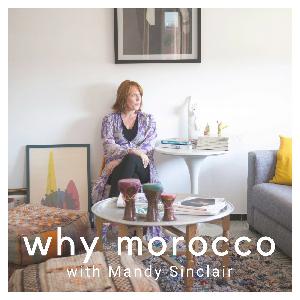Why Morocco 029 – Meryam Demnati on Amazigh culture in Morocco
Description
To support Why Morocco, please consider buying me a coffee nouss nouss.
With a new year and a new decade upon us, I sat down with Meryam Demnati, an Amazigh activitist, to chat about a little-known New Year celebrated in here in Morocco – Yennayer – the Amazigh New Year for the latest episode of Why Morocco. Celebrated on 12 January by the native peoples of North Africa, Yennayer marks the shift from extreme cold and milder temperatures and is celebrated by Amazigh (sometimes referred to as Berbers) communities not only in Morocco, but throughout North Africa. Interestingly though, January 1 and the Islamic New Year are observed here in Morocco with official bank holidays, but Yennayer is not.
As an activist, Meryam also talks about the status of the Amazigh language and Tifinagh alphabet in Morocco, recognition of the Amazigh culture, and the causes the Amazigh movement has and continues to work on since post-independence in Morocco.
To support Why Morocco, please consider buying me a coffee nouss nouss.
For more Morocco ideas and advise, follow me on Instagram at @ms.mandy.sinclair
My other projects include:
- Travel and public relations consulting at Mandy Sinclair PR
- Freelance writing for print and digital mandyinmorocco.com/freelance-writing/
- Tasting Marrakech food and cultural tours in Marrakech tasting-marrakech.com






I love the podcasting you have with Mrs Damnati with such nice information, but just to correct one thing that you asked her about the amazigh in Morocco, the majority of Moroccan are Moroccan, I can say 95% are amazigh, and the prove is now Arabic people in Morocco are doing the test of DNA, and they find that they are more then 80 or 90% amazigh and other % left are spanish or something else, but not arabic, so I think the north or the whole morocco is amazigh, 2760years ago, until now, I think the original people are amazigh in Morocco, but Arabic from Chibh JAZIRA arabia had played thier own play. me myself, I'm 97% Amazigh 1% Jewish and 2% Spanish thank you so much for the information with Mrs Damnati